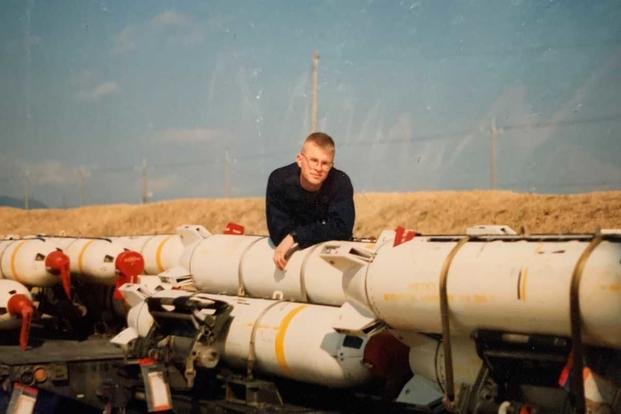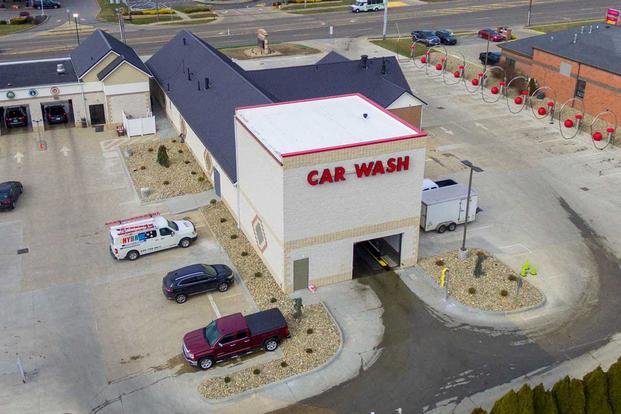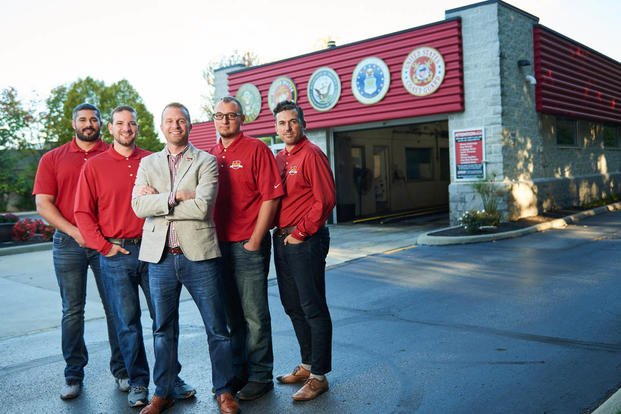In 2013, Marine Corps veteran Brian Krusz entered the car wash business. The northeast Ohio native didn't expect to fall in love with the car wash business but, seven years and six of his Sgt. Clean Car Wash locations later, his surprise love is treating him well.
"We had to go to the '3 Fs' -- friends, fools and family -- asking for money," Krusz said. "We wanted to buy it, rebrand, fix the inside up and have a contest to rename the car wash. People knew I was in the Marine Corps so it became Sgt. Clean, and it's worked out so far."
It not only worked out, but Krusz and Sgt. Clean have made Inc.'s Vet100 list, the fastest-growing veteran companies in 2018 and 2019. They also made Inc.'s 5000 Fastest Growing Companies list for the past three years.
Today, veterans can start a home business for nearly any product, whether they're sewing it at home, roasting it at home or just offering services that can be performed from anywhere. Krusz wants aspiring veteran entrepreneurs to be prepared for the unexpected, because there are always surprises, and he takes great pride in assisting other veteran business owners either to get started or get ahead.
1. Cost
The real surprise for Krusz was how much it cost to start his business.
Startup costs are different for a company that requires a plant -- in business terms, the assets of a business including land, buildings, machinery and all necessary equipment. His first car wash sat on an acre of land and came with everything he needed to get started.
He bought a distressed car wash business in Strongsville, Ohio, just southwest of Cleveland. Despite its obvious age, wear and less-than-optimal location, the cost of that first business was upward of $1 million. As the company grew, investment into additional car wash properties ran a cost of $3 million to $4 million.
2. Debt
In the military, service members are taught by every budgeting class and life skills center that debt is bad. When it comes to personal finance, the debt-free life may be the way to go, but it's not so in the business world.
"It's part of the process," Krusz said. "We didn't just want to start; we wanted to grow. So you take on debt and pay it back in a smart way. It may seem cliche or generic, but it's a problem when you can't control it. We've had a good amount of debt, but we know that we believe in ourselves, we've got structure in place, we believe in the people we hire and that we've got constant progress that we're doing better than we did last week, last month, last year."

3. Start with a Plan
Successful businesses start with a well-thought-out business plan. Anyone looking to get started in business needs to know what their finances look like -- the kind of money they need to make to keep the lights on. A business plan contains the organization and management of your company, what it makes, how it tracks revenues and how it markets its products. Everything is laid out in the plan before you break ground.
"It doesn't need to be 800 pages with a professional PowerPoint," Krusz said. "But like we're taught in the military, if you fail to plan, you plan to fail. You may not be a financial genius, but you at least need to know your break-even."
4. A Feasibility Analysis
Unlike starting an internet-based home business, a physical location requires more capital to get started and, thus, more risk. One thing Krusz has learned in his years of helping aspiring entrepreneurs is that they fall in love with their idea and fail to consider whether it will actually make money. A feasibility study is the way to determine whether a business idea is viable or just a pipe dream.
"You need to take a step back even if you're in love with an idea," he said. "If you're too in love with it, you won't take feedback and you won't listen to anybody. They won't be told how feasible it is. Or isn't."
5. Hiring Is Important
Sure, hiring the right people is important to any business. But for a business with a fixed location and a local reputation, the employees, not just the brand, are also the customer-facing side of the business.
"When you first get started in business, you're wearing like 15 hats," Krusz said. "When you start to hire, hire good people, know who you're working with and relinquish those hats and responsibilities. Find good, responsible team members that can handle the specific departments and then let them go. Hire good people and then get out of their way.”
6. Location

The location of your business should also be part of your business plan and feasibility study. For Krusz and Sgt. Clean Car Wash, it's the most crucial element to opening a new location. He has to consider what he calls the "five factors": access to the business, the traffic in the area, competition in the area, visibility from the street and the demographics of the local area.
"These factors aren't just for car washes; it's important for all brick-and-mortar businesses," he said. "But we have to make the right, best decision for that brick-and-mortar building, or I could be a block and a half away from success."
-- Blake Stilwell can be reached at blake.stilwell@military.com. He can also be found on Twitter @blakestilwell or on Facebook.
Want to Know More About Veteran Jobs?
Be sure to get the latest news about post-military careers, as well as critical info about veteran jobs and all the benefits of service. Subscribe to Military.com and receive customized updates delivered straight to your inbox.












